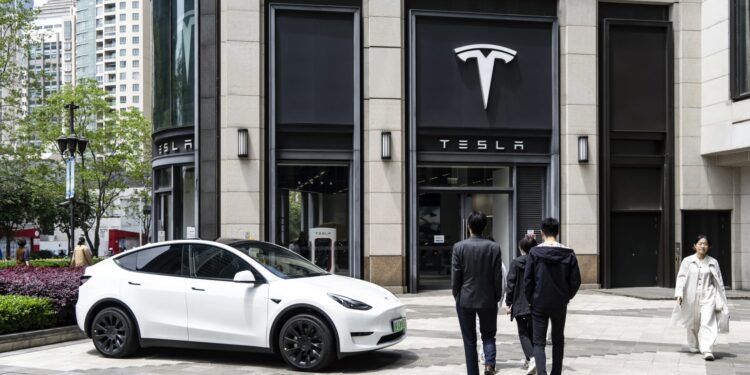The possibility of a trade war between the United States and its major trading partners has cast uncertainty over a variety of companies, as noted by JPMorgan. Over the weekend, President Donald Trump announced a 25% tariff on imports from Canada and Mexico, in addition to a 10% levy on Chinese goods. However, the tariffs for Canada and Mexico were paused for 30 days on Monday. In response, China imposed tariffs up to 15% on select U.S. products. This tit-for-tat on trade issues has triggered worries about potential impacts on various industries, leading to fluctuations in global equity markets.
To help navigate this persistent “trade turbulence,” JPMorgan’s strategist, Dubravko Lakos-Bujas, identified several U.S. companies that could be particularly vulnerable to rising U.S. tariffs on imports from key regions such as China, Mexico, Canada, and Europe. “Most market participants have been bracing for tariff announcements since the U.S. election and recognize that Tariffs 2.0 will be strategically used by the Trump Administration for issues beyond trade, such as immigration, national security, and foreign policies,” stated Lakos-Bujas in a note to clients. “We foresee sudden spikes in market volatility followed by rebounds, with significant stock variability being a common feature through 2025.”
The companies highlighted by JPMorgan come from the assessments of dozens of analysts examining roughly 1,000 companies with substantial revenue exposure to the affected regions. Among those expected to face significant tariff-related challenges are automakers and auto suppliers. This industry is under pressure from new tariff concerns, as many electric and autonomous vehicle companies operate within China and depend on imports to satisfy local consumer demand. JPMorgan pointed to Tesla, auto parts supplier Aptiv, and commercial vehicle retailer Penske Automotive as key players that might struggle in the current climate. Tesla and Aptiv have considerable exposure to the Chinese market, while Penske’s revenue is closely linked to Europe. Tesla’s shares have dipped over 5% this week, Aptiv has decreased by over 1%, and Penske initially fell by 1% on Monday but has since climbed over 3% for the week.
Other prominent stocks, dubbed the “Magnificent Seven,” also face tariff risks, including Apple and Amazon. Apple is seen as particularly vulnerable among large tech firms, given that much of its product assembly occurs in China. Additionally, Amazon’s advertising business benefits from Chinese sellers, and many third-party sellers on its platform are based in China. Consumer product giants and retailers like Colgate-Palmolive, eBay, and Estée Lauder are similarly at risk due to these escalating trade tensions.

















